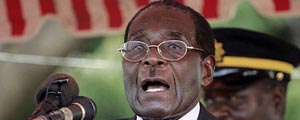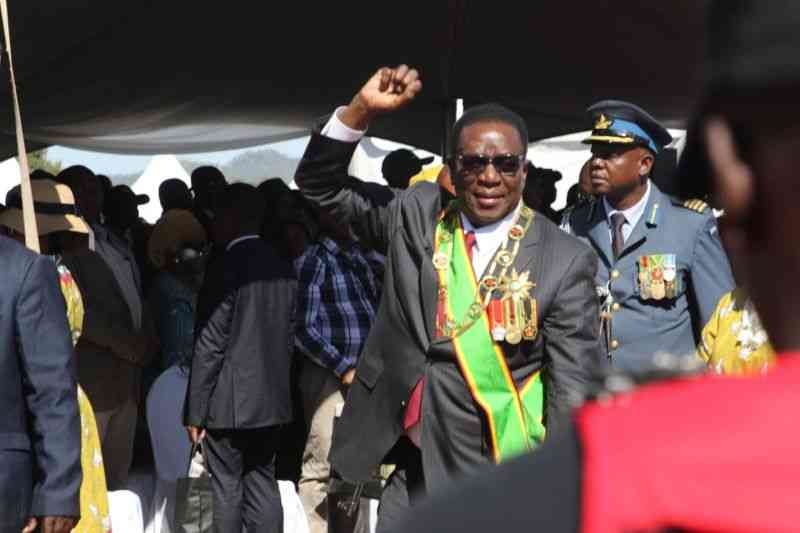
The number of people, mostly ordinary Zimbabweans, who are being arrested for allegedly insulting President Robert Mugabe has swollen significantly in recent months.
Report by Tangai Chipangura,Deputy Editor
The Zimbabwe Lawyers for Human Rights (ZLHR) alone are representing over 50 individuals who have been dragged to court for calling Mugabe all sorts of names in anger, frustration, excitement or in jest.
Some political observers and commentators have attributed the development to growing resentment of the 88-year-old leader by his subjects, who blame him for their individual predicaments.
But other analysts blamed it on the overzealousness of the law enforcement agents who arrest the offenders, hence bringing the otherwise “common and insignificant” insults out into the public domain.
ZLHR communications officer Kumbirai Mafunda yesterday said his organisation was concerned about the growing number of arrests involving the alleged undermining of the authority of the President.
He said the fact that the human rights lawyers were representing over 50 fairly recent cases was indicative of a likelihood there were many more similar cases around the country which his organisation might not be aware of.
Ironically, according to ZLHR statistics a Mugabe insults, Mashonaland Central, the bastion of his Zanu PF party, topped the list of cases of people that have allegedly called Mugabe names.
- Chamisa under fire over US$120K donation
- Mavhunga puts DeMbare into Chibuku quarterfinals
- Pension funds bet on Cabora Bassa oilfields
- Councils defy govt fire tender directive
Keep Reading
Political analyst Alexander Rusero said the increase in the alleged insults had various reasons to it, one of which was repressive laws enacted by Mugabe’s successive administrations.
The other dimension, he said, was an indication of the growing frustration among the people of Zimbabwe over the current leadership which they found to have overstayed and responsible for their maladies.
“The implications are multi-dimensional. It is, on one hand, indicative of the problems that we have with the redundant laws of an old regime,” he said.
“The President occupies that office by virtue of his being a politician and should, therefore, be open to criticism in a democracy.This situation where we have people arrested over a slight slip of the tongue is wrong.”
“Political opponents should be free to say their minds about the President for the purpose of winning votes.”
The more worrying scenario, however, he said, was the growing number of cases of insulting the President, an indicator of deepening frustration among the people or hate of the leader.
“This is a case where the centre no longer holds. The increase in the contempt of the national leader may be indicative of rising frustration of the ordinary person,” Rusero said.
“They are amplified messages being sent to the President where you find simple villagers being bold enough to insult the person of the President without fear of the consequences, or where drunkards act in such insultive ways as tearing up images of the President or pelting his portraits.”
Another political commentator, Ibbo Mandaza, attributed the growing trend to overzealousness of the law-enforcing agents. He said cases where presidents were insulted by their subjects were common and should not be seen as unique to Zimbabwe.
“Presidents the world over are prone to public banter and political jokes. That’s the reality of politics. The problem is that our authorities are overzealous. Look, even in the United States, President Barack Obama was subjected to even racial insults. There is, however, need for careful distinction between outright insults and political jest.”
Mafunda said cases of people being arrested for such offences had increased since 2010.
The lawyers have since referred some of the cases to the Supreme Court where they are challenging the constitutionality of the sections of the law under which the people are being charged. Police use Section 33 of the Criminal Law (Codification and Reform) Act, which deals with “undermining the authority of or insulting the President”.
Among the people arrested is a Chiredzi man who, while drinking in some beer-hall, allegedly threw missiles at Mugabe’s portrait, apparently angry that he was jobless despite being educated.
Nyanga North MP Douglas Mwonzora, who is also MDC-T spokesperson, was arrested in March 2009 and charged for allegedly likening Mugabe to a goblin while addressing a rally.
Meanwhile, Energy and Power Development minister Elton Mangoma was yesterday summoned to appear before a Bindura magistrate on Tuesday next week on charges of insulting Mugabe. The minister was served with the summons at his government offices by two detectives from Bindura.











